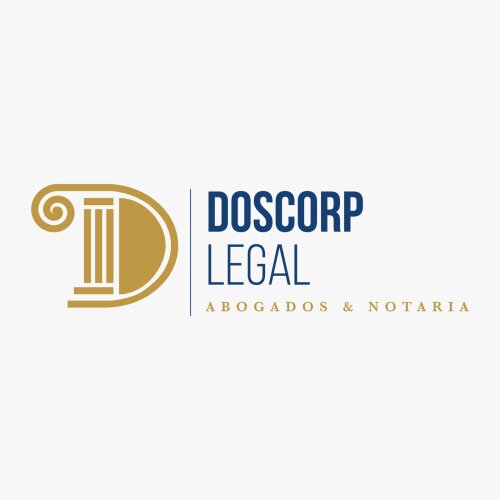Best Natural Resources Lawyers in Santo Domingo
Share your needs with us, get contacted by law firms.
Free. Takes 2 min.
List of the best lawyers in Santo Domingo, Dominican Republic
About Natural Resources Law in Santo Domingo, Dominican Republic
The Dominican Republic, with its diverse landscapes, is rich in natural resources. These resources include minerals, fertile land, surrounded by the Caribbean Sea and the Atlantic Ocean, as well as various ecosystems such as rainforests and mangroves. In Santo Domingo, the capital and largest city, Natural Resources Law is an essential area of legal practice. Laws are structured around the sustainable use, protection, and management of these resources to balance ecological preservation with economic growth.
Natural Resources Law in Santo Domingo encompasses regulations regarding mining, agriculture, forestry, water resources, coastal zones, and environmental protection. The legal framework aims to ensure that these resources are utilized sustainably and equitably while minimizing adverse impacts on the environment.
Why You May Need a Lawyer
Engaging a lawyer in the field of Natural Resources in Santo Domingo might be necessary in various situations:
- Mining and Extraction Activities: If you are involved in mineral extraction, legal advice can help navigate the complex permits and compliance requirements.
- Agriculture and Land Use: Legal assistance may be necessary to understand land use regulations and rights, especially concerning agricultural practices.
- Environmental Impact Assessment: Businesses often require legal input to conduct appropriate assessments and comply with environmental regulations.
- Water Rights and Management: Legal advice can help in understanding water use rights and obligations, especially for businesses dependent on these resources.
- Coastal Development: Developments along the coast may require navigating intricate coastal management laws to ensure compliance.
Local Laws Overview
The legal framework governing natural resources in Santo Domingo comprises several key laws and regulations:
- Environmental Law (64-00): This law provides the foundation for environmental protection and resource management, emphasizing the prevention of pollution and sustainable resource use.
- Mining Law (146-71): Regulates the exploration and exploitation of mineral resources, emphasizing concessions, royalties, and environmental obligations.
- Land Use Planning Law: Governs how land can be utilized and developed, including zoning laws and land distribution for agricultural purposes.
- Forestry Law (202-04): Sets regulations for the conservation and sustainable use of forest resources, including reforestation and logging activities.
- Water Law (5852): Addresses the equitable distribution, use, and conservation of water resources, vital for agriculture and industry.
Frequently Asked Questions
What is required to obtain a mining concession in Santo Domingo?
To obtain a mining concession, you must apply through the Ministry of Energy and Mines, providing geological studies, an environmental impact assessment, and meeting other regulatory requirements stipulated under the Mining Law.
Are there specific laws regulating the use of water resources?
Yes, Water Law 5852 regulates water use, ensuring equitable distribution and conservation. Permits are required for different uses, and legal assistance can be helpful in the application process.
How does the Environmental Law affect businesses in Santo Domingo?
Environmental Law 64-00 impacts businesses by requiring compliance with pollution prevention measures and sustainable practices to mitigate environmental impacts. Businesses may require an environmental license depending on their activities.
What are the consequences of non-compliance with environmental regulations?
Non-compliance can result in fines, closure of operations, and legal action. It is crucial for businesses to ensure they meet all regulatory requirements to avoid these consequences.
How can I file a complaint about illegal logging?
Complaints can be submitted to the Ministry of Environment and Natural Resources, which investigates and enforces forestry laws to protect against illegal logging activities.
What role does the government play in protecting coastal areas?
The government enforces coastal management regulations to balance development with conservation. Any activity affecting coastal zones typically requires a legal permit, ensuring minimal environmental impact.
Can foreigners own land for agricultural purposes?
Yes, foreigners can own land for agricultural purposes but must comply with local laws related to land use and environmental protection.
Is an Environmental Impact Assessment (EIA) mandatory for all projects?
Not all projects require an EIA, but significant developments that may impact the environment usually do. Legal advice can determine whether your project requires an EIA.
What is sustainable extraction, and is it legally required?
Sustainable extraction involves using resources in a way that is ecologically viable for the long term. While not always explicitly required, many laws encourage sustainable practices to minimize environmental damage.
How are natural resource disputes typically resolved?
Disputes are often resolved through negotiation or mediation, but can also be litigated in court if necessary. Engaging a lawyer specialized in natural resource disputes is advisable.
Additional Resources
For more information or assistance, consider the following resources:
- Ministry of Environment and Natural Resources: The primary governmental body for environmental and resource management.
- Ministry of Energy and Mines: Oversees mining regulations and energy resources.
- National Land Registry: Provides land ownership and registration services.
- Environmental NGOs: Some non-governmental organizations focus on environmental advocacy and education.
Next Steps
If you need legal assistance regarding natural resources in Santo Domingo, it’s prudent to seek out a qualified lawyer who specializes in this area of law. Begin by conducting research to identify credible law firms or practitioners with experience in natural resources. Additionally, consider reaching out to governmental bodies or consulting with environmental NGOs for further guidance and information. Having a clear understanding of your specific legal needs will help your chosen legal counsel provide the most effective assistance.
Lawzana helps you find the best lawyers and law firms in Santo Domingo through a curated and pre-screened list of qualified legal professionals. Our platform offers rankings and detailed profiles of attorneys and law firms, allowing you to compare based on practice areas, including Natural Resources, experience, and client feedback.
Each profile includes a description of the firm's areas of practice, client reviews, team members and partners, year of establishment, spoken languages, office locations, contact information, social media presence, and any published articles or resources. Most firms on our platform speak English and are experienced in both local and international legal matters.
Get a quote from top-rated law firms in Santo Domingo, Dominican Republic — quickly, securely, and without unnecessary hassle.
Disclaimer:
The information provided on this page is for general informational purposes only and does not constitute legal advice. While we strive to ensure the accuracy and relevance of the content, legal information may change over time, and interpretations of the law can vary. You should always consult with a qualified legal professional for advice specific to your situation.
We disclaim all liability for actions taken or not taken based on the content of this page. If you believe any information is incorrect or outdated, please contact us, and we will review and update it where appropriate.














